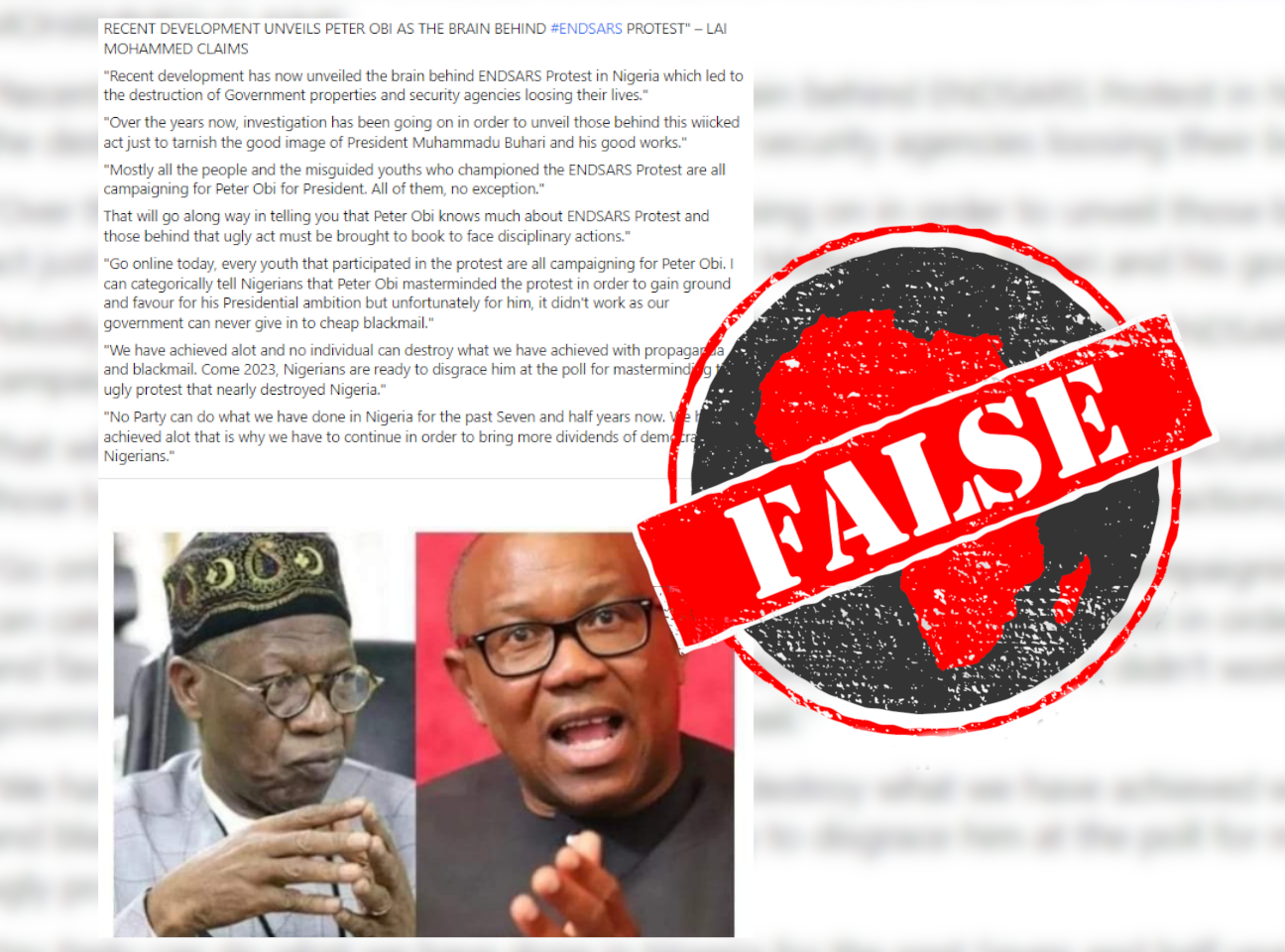Nigerian information minister Lai Mohammed has accused Labour Party presidential candidate Peter Obi of being “the brain behind” the #EndSARS protest movement, claim messages circulating on Facebook since July 2022.
“Recent development has now unveiled the brain behind ENDSARS Protest in Nigeria which led to the destruction of Government properties and security agencies losing their lives,” the longer version reads.
The #EndSARS movement against the brutality of the notorious Special Anti-Robbery Squad began on Twitter but soon spread to the streets of Nigeria. In October 2020, police shot dead at least 12 protesters at the Lekki toll gate in Lagos.
The message adds: “Mostly all the people and the misguided youths who championed the ENDSARS Protest are all campaigning for Peter Obi for President. All of them, no exception.”
Nigeria is set to hold general elections to select a new president and vice president, as well as members of the senate and house of representatives, on 25 February 2023.
The messages can be seen on Facebook here, here, here, here, here and here.
But did Mohammed really say Obi was behind the #EndSARS protests? We checked.

Claim debunked by ministry
The messages don’t say when and where Mohammed made the statement. This lack of detail is often a sign that a claim is false.
And no credible Nigerian news outlets have reported it. If the information minister had made such a bombshell accusation, it would have been in the headlines.
We found no evidence of the statement on the information ministry’s website or social media pages.
In July, the ministry posted a screenshot of the longer version of the message on its verified Twitter account, with a “FAKE” stamp across it. It wrote: “#FakeNews Alert!”
As Nigeria’s 2023 elections approach, Africa Check is seeing an increasing number of quotes and comments falsely attributed to key political figures. This may distort political debate online and in real life, and so reduce voters’ ability to make informed choices.
Republish our content for free
For publishers: what to do if your post is rated false
A fact-checker has rated your Facebook or Instagram post as “false”, “altered”, “partly false” or “missing context”. This could have serious consequences. What do you do?
Click on our guide for the steps you should follow.
Publishers guideAfrica Check teams up with Facebook
Africa Check is a partner in Meta's third-party fact-checking programme to help stop the spread of false information on social media.
The content we rate as “false” will be downgraded on Facebook and Instagram. This means fewer people will see it.
You can also help identify false information on Facebook. This guide explains how.


Add new comment